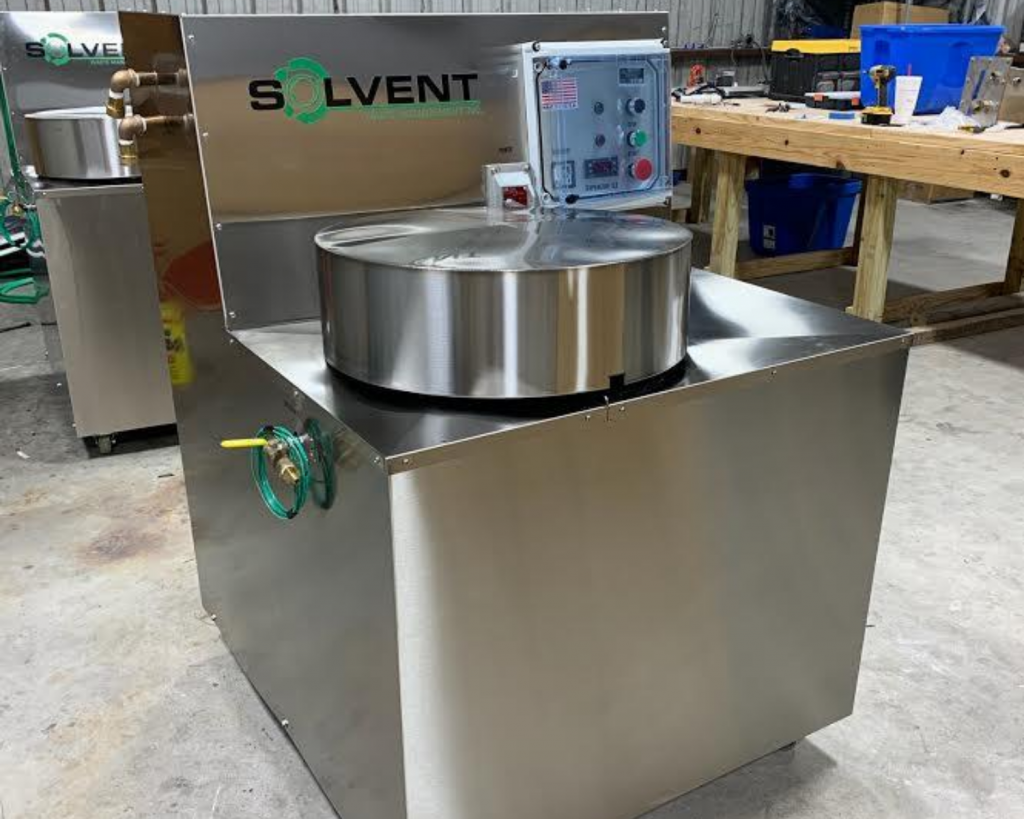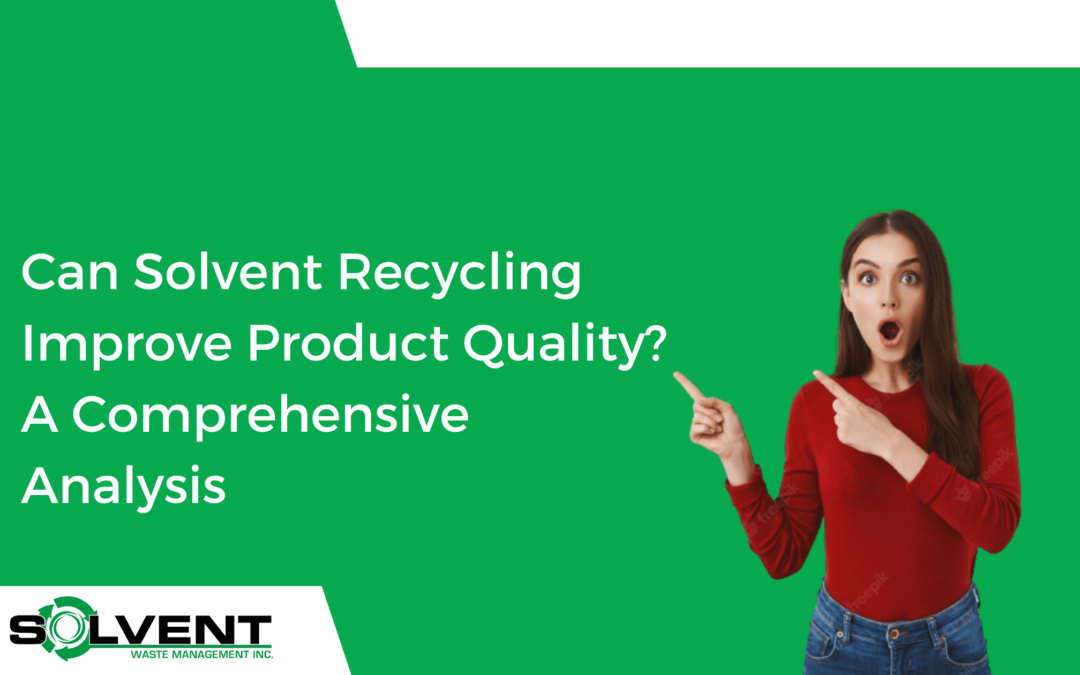As industries strive to adopt sustainable practices and reduce their environmental impact, solvent recycling has emerged as a popular solution. This method not only minimizes waste and cuts costs but can also contribute to improving product quality. But Can Solvent Recycling Improve Product Quality?
In this blog, we will explore how solvent recycling can impact product quality, the factors to consider when implementing this practice, and the benefits it offers to businesses and the environment.
How Solvent Recycling Affects Product Quality
Solvent recycling involves the recovery and reuse of solvents that have been contaminated or used in various industrial applications. This process typically includes separating contaminants from the solvents, rendering them clean and suitable for reuse. The recycled solvents can then be reintroduced into the production process, reducing the need for new, virgin solvents.
The impact of solvent recycling on product quality can vary depending on several factors, such as the type of solvents, the recycling technology used, and the industry in question.
In some cases, solvent recycling can lead to improved product quality by ensuring a consistent supply of high-purity solvents. In other instances, the recycling process may introduce impurities or alter the solvents’ properties, potentially affecting product quality.
Factors to Consider for Ensuring Product Quality
1. Solvent Purity
The purity of the recycled solvents is a critical factor in determining their impact on product quality. High-quality recycling processes should yield solvents with a purity level comparable to new, virgin solvents. To ensure the recycled solvents meet the required purity standards, companies must implement stringent quality control measures, such as regular testing and analysis, throughout the recycling process.
2. Recycling Technology
The choice of recycling technology can also impact the quality of the recycled solvents and, subsequently, the final products. Different recycling technologies, such as distillation, adsorption, and membrane separation, have varying degrees of effectiveness and may be more suitable for specific types of solvents and contaminants. It is essential to select the appropriate technology based on the solvents’ properties and the desired level of purity.
3. Process Integration
Integrating solvent recycling into the production process can be a complex task, requiring careful consideration of the potential impacts on product quality. Companies must evaluate their processes and equipment to ensure they can accommodate the recycled solvents without compromising product quality. This may involve adjusting production parameters or investing in specialized equipment designed for use with recycled solvents.
4. Industry-Specific Requirements
The impact of solvent recycling on product quality can also depend on the specific industry and its requirements. For instance, industries with stringent quality standards, such as pharmaceuticals or electronics manufacturing, may need to implement additional quality control measures or use specialized recycling technologies to ensure the recycled solvents meet their exacting requirements.
Benefits of Solvent Recycling for Product Quality
1. Consistent Supply of High-Quality Solvents
One of the primary benefits of solvent recycling is the ability to maintain a consistent supply of high-quality solvents. By recycling and reusing solvents, companies can reduce their reliance on new, virgin solvents, which may be subject to fluctuations in availability and price. This can help ensure a stable supply of solvents, contributing to consistent product quality.
2. Enhanced Quality Control
Implementing solvent recycling often requires companies to adopt more rigorous quality control measures to ensure the recycled solvents meet the required purity standards. This increased focus on quality control can lead to improvements in overall product quality, as potential issues are more likely to be identified and addressed.
3. Customization and Optimization
Solvent recycling can also offer opportunities for customization and optimization. By recycling solvents in-house, companies can tailor the recycling process to their specific needs and requirements, ensuring the recycled solvents are well-suited for their intended applications. This can help optimize production processes and contribute to improved product quality.
4. Reduced Contamination Risks
By recycling and reusing solvents, companies can minimize the risk of contamination from external sources, such as impurities in newly purchased solvents or issues with transportation and storage. This can help ensure a consistent level of purity in the solvents used in production, contributing to better product quality.
5. Environmental Benefits
In addition to the potential benefits for product quality, solvent recycling also offers significant environmental advantages. By recycling solvents, companies can reduce their demand for new, virgin solvents, conserving resources and reducing the energy required for solvent production. Furthermore, recycling solvents helps minimize the amount of hazardous waste generated, decreasing the risk of pollution and harm to the environment.
6. Cost Savings
Solvent recycling can also lead to cost savings for businesses. By reducing the need for new, virgin solvents and minimizing waste disposal costs, companies can save money on raw materials and operational expenses. These savings can be reinvested in other areas, such as research and development, quality control, or equipment upgrades, which can contribute to improved product quality.
In conclusion, solvent recycling can indeed improve product quality when implemented correctly and with careful consideration of the factors discussed in this blog.
By ensuring a consistent supply of high-purity solvents, enhancing quality control, and optimizing production processes, solvent recycling can offer numerous benefits to businesses and the environment.
However, it is crucial for companies to thoroughly evaluate their specific needs and requirements, as well as the recycling technologies available, to ensure the recycled solvents meet their quality standards and contribute to better product quality.
About Solvent Waste Management
Since 1994, Solvent Waste Management, Inc. has assisted many companies in a variety of different industries not only improving their operations but also reducing costs.
Solvent Waste Management Inc. designs and manufactures solvent distillation equipment that cleans contaminated solvents, allowing users to restore and continuously reuse solvents – thereby saving money on the cost of disposal and the cost of new solvents.

Model SW8 Solvent Recovery System
Model SW30 Solvent Cleaning Machine
Model SW55 Solvent Recycler Machine
Model SW70 Solvent Recovery Equipment
Solvent Waste Management designs and manufactures solvent recycling equipment that cleans contaminated solvents in such a way that the customer can reclaim and reuse solvents again and again, thus saving on both the cost of solvent disposal and the cost of new materials.

